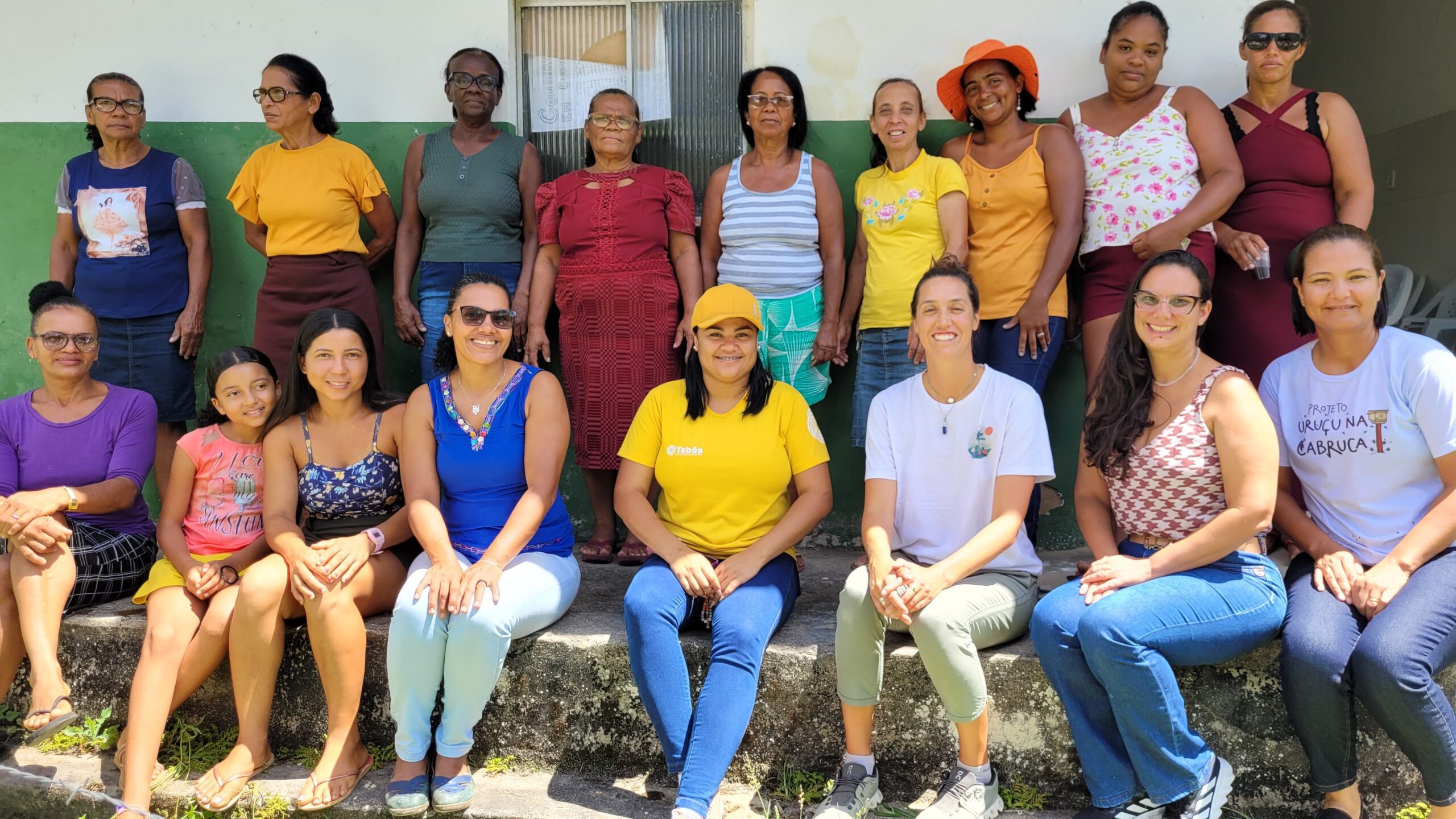
Production of preserves, handmade soaps, chicken farming, and fruit dehydration. These were some of the ideas that emerged at the meeting of the women’s group from the Nova Vitória Settlement, in Ilhéus, on February 7, to collectively invest a resource of R$10,000. The amount, resulting from the sale of women’s empowerment credits, is part of a pioneering initiative in Brazil, which uses the W+ Standard, a methodology developed by Women Organizing for Change in Agriculture and Natural Resource Management (WOCAN). The method creates social value through six indicators: Time savings; Health; Education and Knowledge; Food security; Income and Assets; and Leadership.
The meeting took place in the hall where, one day, a cassava flour house should operate, a project dreamed by the community for years. The resource obtained from the sale of credits is a milestone for these women, who are now planning how to turn the amount into new income generation opportunities and community development.
How Does the W+ Standard Work
To generate credits, it is necessary to measure women’s empowerment, analyzing data collected in projects and communities. In the case of the Nova Vitória Settlement and four other settlements in southern Bahia, the credits were generated based on the results achieved by meliponiculture beneficiaries of the Uruçu na Cabruca Project (from Tabôa Fortalecimento Comunitário) and by farmers who participated in the first Sustainable CRA in Brazil — a microcredit project developed by Instituto Arapyaú and Tabôa in partnership with other organizations. The CRA benefited over 270 cocoa-producing families in agroforestry systems in the region.
“There is ample evidence showing that women not only manage properties better but also invest additional income for the benefit of their communities and families,” highlights Vinícius Ahmar, Bioeconomy Manager at Arapyaú. This ability to generate positive impact is precisely what the W+ Standard seeks to value and monetize.
The methodology for measuring, selling, and distributing credits was applied by the impact developer ERA Brazil in Tocantins and, with the support of Arapyaú and Tabôa, in southern Bahia. Sophie Simmons, ERA’s W+ coordinator, explains that each credit represents a 10% improvement in a woman’s quality of life and is traded for US$20. “Just like in the carbon market, the cost can vary depending on demand. But, in this pilot round, we sold 2,424 credits at US$20 each,” she details. The portion destined for Bahia will be shared among female communities from five agrarian reform settlements.
Dreams and Achievements
Ailana Reis, president of the Nova Vitória settlers’ association, says the community received the news of the arrival of the resource with enthusiasm. “Two years ago, we answered a questionnaire brought by Sophie and, a few days later, each of us received R$15. That’s why there’s a joke among us that Sophie is the ‘fifteen lady’. If those R$15 were already a pleasant surprise, imagine this news of R$10,000?” she celebrates. The farmer also shares the dream of finally seeing the cassava flour house started in 2007 in full operation. “With each project that increases our knowledge and our ability to generate income, we get closer to that goal,” she says.
Challenges and Opportunities
Investing in women’s development through increased income, assets, knowledge, and health is to value their well-being and recognize their importance for productivity and sustainability in the field. However, the negotiation of women’s empowerment credits is still a novelty in the global market. “The main challenge lies in the commercialization of these credits. The sales volume is still very low, and the market is far from being consolidated. There are companies showing interest, aligning with good governance and sustainability policies, but there is still no structured market or widespread dissemination of initiatives like this,” points out Victor Ferraz, Bioeconomy Projects Coordinator at Instituto Arapyaú. “The big challenge is to ensure that the sale of these credits generates a tangible return for the beneficiaries.”
The application of the W+ Standard in Arapyaú’s projects allows for the remuneration of a service that often goes unnoticed: the social impact generated by women’s work in the field. Vinícius Ahmar outlines a circular path for sustainable development of productive chains.
“First, we work with credit for women, also offering technical assistance. With this, she can improve productivity and increase her income. Secondly, this higher income, combined with productivity gains, allows us to measure the specific impacts generated for women and, from that, issue empowerment credits. When these credits are sold, women receive additional income. As women tend to invest more significantly in their communities, families, and plantations, the positive impact is even greater. It is a virtuous cycle that we understand is essential to foster and expand.”
– Vinicius Ahmar, Bioeconomy Manager at Arapyaú.
Next Steps
Having overcome the initial challenges, the next steps in the partnership between Arapyaú and the W+ Program include scaling up operations. “We want to take this service to other biomes, other productive chains, and keep this virtuous cycle spinning,” Vinícius concludes. Meanwhile, in the Nova Vitória Settlement, women continue to plan for the future, showing that with resources and opportunities, it is possible to work towards turning dreams into reality.